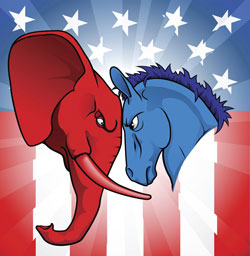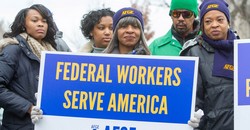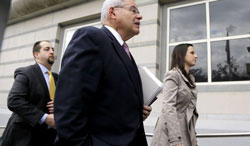 Many Services Offered by the Federal Government Will Not Be Reinstated Until Deal is Made
Many Services Offered by the Federal Government Will Not Be Reinstated Until Deal is Made
On Tuesday October 1, 2013 at 12:01, the federal government could not reach an agreement on a budget and as a result, led to a government shutdown.
This is not a new thing the US Federal Government shut down in 1995 and 1996. It lasted 28 days and included putting non-essential government workers on furlough and the suspension of non-essential services. We should expect a similar result this time.
Professor of economics and finance, Dr. Steven Pressman, said that a shutdown could result in slower economic growth, “but it should not lead to any major economic catastrophe (assuming that the situation ends shortly after Oct. 1 because people are so upset with Congress).”
When the day came for the shutdown, there was not one major event but a chain of events. Most essential federally funded operations will remain untouched, like post offices, military personnel and coastal services. National Parks, Museums, and monuments will close, along with major delays the acquiring of federal loans, permits, and passports due to the shutdown.
According to CNN, non-time sensitive government jobs will see furloughs paid and others not. The longer the shutdown lasts the more of an effect it will have on an average American.
Political Science and Sociology Professor, Dr. Thomas Lamatsch thought the actual chance of the shutdown was, “unlikely.” He said Congress (the Republicans and the Democrats) always argue and that this was another tactic used to coerce the other side.
“The last time this [shutdown] happened, the Republicans were blamed and were hurt badly in the election that followed.” said Lamatsch.
“No legislator wants to return home and answering questions about why “they” let such a thing happen. It seems this time is no different,” said Lamatsch.
According to a CBS News/NY Times Poll, more people will blame House Republicans for the shutdown than President Obama. The poll said that 44 percent of Americans will blame the Republicans in Congress while 35 percent will put more of the blame on Barack Obama and the Democrats in Congress. 16 percent volunteer that they will blame both sides equally.
This is similar to the 51 percent of people that blamed Newt Gingrich and Republicans in Congress in 1995, with Bill Clinton only taking 23 percent of the blame.
Back then, the fight was over Medicare in the budget. Again it seems healthcare spending is the motivation. Senate has passed a budget that includes the Obama care spending, while the House’s passed bill cuts the Patient Protection and Affordable Care Act spending.
Chemistry major Wesley Cunningham said, “I don’t think it matters whether you agree with it [Obamacare] or not. What I do think is that most people are fed up with the bickering that goes on within our government. Democrat and Republican need to transcend all of that for the greater good of our country.”
As the shutdown progresses Congress has to make up its mind.
Pressman said that there are two things really going on and it is important to keep them separate.
“My biggest fear is that the debt ceiling (or the government’s ability to borrow more money) does not get increased by the end of October. In that case the government will not be able to pay its bills and will have to default,” said Pressman.
This disagreement in Congress will have much more dire consequences. Borrowing cost will be raised, for the government, businesses and consumers. Pressman explained how this could eventually lead to higher loan costs for college students as well. The failure to raise the debt ceiling could also have immediate and long term negative effects on the country’s economy.
IMAGE TAKEN from themoneyupdate.com


